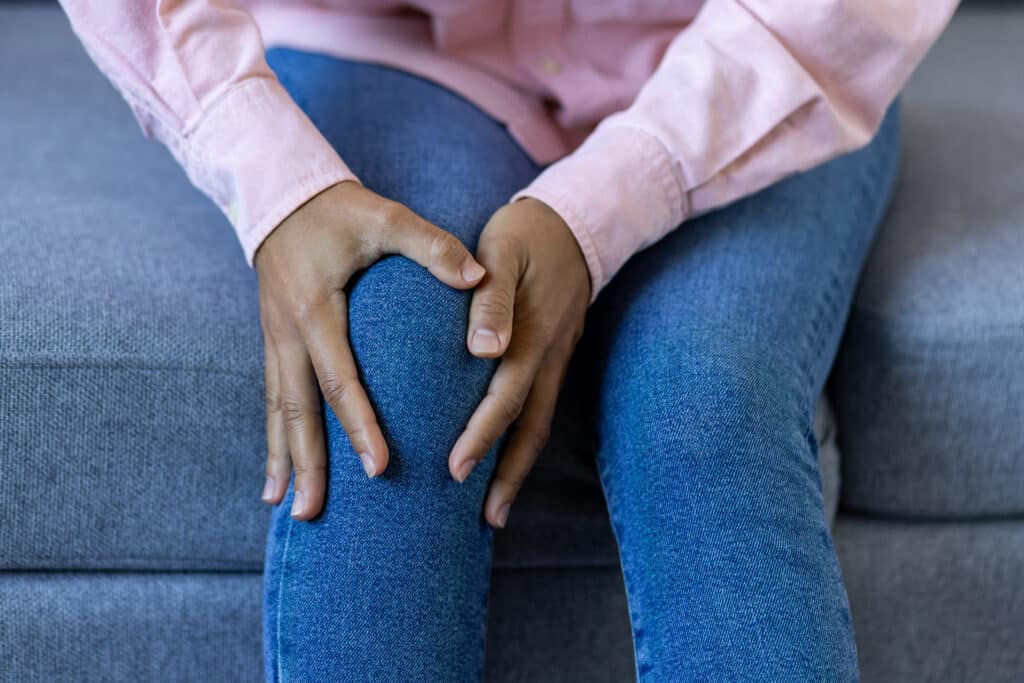
Knee pain is a debilitating condition affecting millions globally. However, emerging research suggests that easing knee pain might indeed wend through the ear, offering a novel and promising therapeutic avenue. A new study published in the journal Osteoarthritis and Cartilage Open, revealed strong early trial results showing that stimulating the vagus nerve through the ear improved knee pain for a significant number of patients.
The vagus nerve, a critical component of the parasympathetic nervous system, is pivotal in regulating the body’s “rest and digest” functions. This system acts in opposition to the sympathetic nervous system, which governs the “fight-or-flight” response. According to lead researcher Kosaku Aoyagi, an assistant professor of physical therapy and movement sciences at the University of Texas at El Paso, current evidence suggests that individuals experiencing osteoarthritis knee pain often exhibit an imbalance between sympathetic and parasympathetic activity, which contributes to their discomfort. “By stimulating the vagus nerve, we hypothesized that our treatment may rectify this imbalance,” Aoyagi explained in a news release.
How the trial worked
The small trial of 30 patients suffering from knee pain received an hour of treatment with a transcutaneous auricular vagus nerve stimulation (tVNS) device. This innovative device, designed to rest on the ear, sends electrical pulses to the branch of the vagus nerve that traverses through the ear. Notably, tVNS devices have already secured U.S. Food and Drug Administration (FDA) approval for treating conditions such as epilepsy and depression, underscoring their established safety and efficacy in other medical contexts. The trial’s results were encouraging: 11 out of the 30 patients reported a noticeable improvement in their knee pain after just one treatment session. These findings are strong enough to warrant a larger, follow-up clinical trial, which will include a placebo group to further validate the efficacy of vagal nerve stimulation for knee pain.
Stacy Wagovich, interim dean of the University of Texas at El Paso College of Health Science, lauded Dr. Aoyagi’s research as an “innovative step in identifying a treatment that successfully reduces knee pain.” Wagovich, who was not involved in the study, emphasized the potential of this work to “greatly improve treatment options available for knee osteoarthritis” with future, large-scale studies.
How knee pain affects Black Americans
The prevalence of knee pain and osteoarthritis, however, is unequal across all demographics. Racial disparities in healthcare access, diagnosis, and treatment often lead to disproportionate burdens of chronic conditions like knee pain among certain groups, especially Black Americans. Studies have consistently shown that Black Americans experience higher rates of knee osteoarthritis and report more severe pain and functional limitations compared to their White counterparts. This disparity is multifaceted, stemming from a complex interplay of socioeconomic factors, systemic biases within the healthcare system, and genetic predispositions.
Socioeconomic factors, such as lower income levels, limited access to nutritious food, and physically demanding occupations, can contribute to higher rates of obesity and joint stress, both significant risk factors for knee osteoarthritis. Furthermore, Black Americans are more likely to live in neighborhoods with fewer resources, including limited access to quality healthcare facilities and specialists. This can lead to delayed diagnoses, less aggressive management of early symptoms, and a reliance on less effective or non-specific treatments.
Systemic biases within the healthcare system also play a crucial role. Implicit bias among healthcare providers can lead to underestimation of pain reported by Black patients, less comprehensive diagnostic workups, and less frequent referrals to specialists or advanced therapies. This can result in a cycle of undertreatment, where chronic knee pain progresses unchecked, leading to greater functional impairment and a reduced quality of life. Access to innovative treatments like tVNS, if proven effective, could be particularly impactful for Black American communities, provided that equitable access and awareness are prioritized.
The development of non-pharmacological, non-invasive treatments like tVNS holds particular promise for addressing knee pain, especially in populations that may face barriers to traditional medical interventions or have concerns about medication side effects. If larger trials confirm it works, tVNS could be a valuable, accessible, and safe alternative or additional treatment for managing knee pain. However, it is key that future research and testing strategies for new treatments actively address and mitigate existing health disparities to ensure that all individuals, including Black Americans, benefit equally from advancements in pain management. The journey to truly easing knee pain for all must acknowledge and actively work to dismantle the systemic barriers that have historically limited access to effective care.









